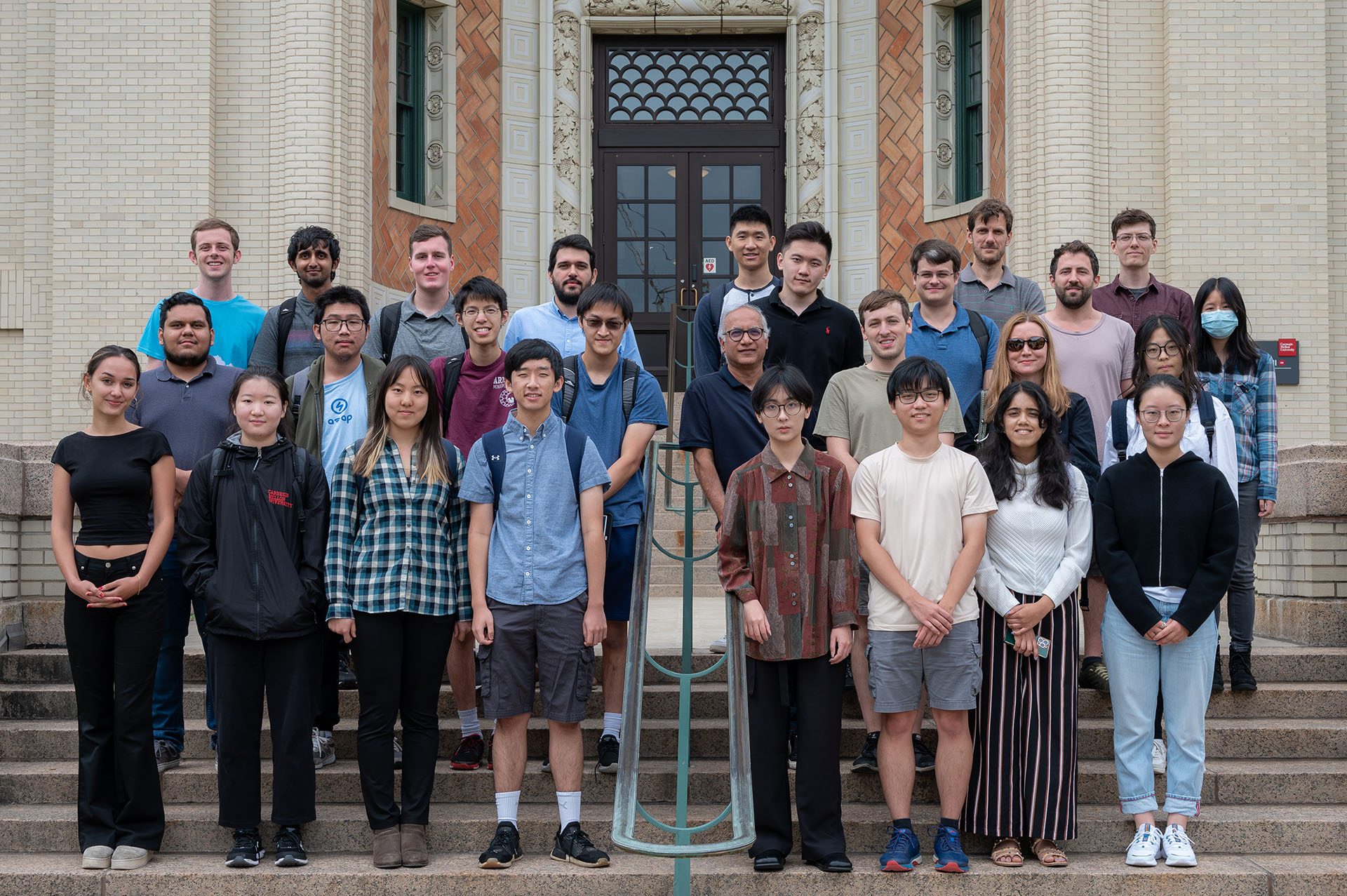Program Lays Groundwork for Students To Explore Math Research
By Kirsten Heuring
& Heidi Opdyke
Media Inquiries- Associate Dean for Marketing and Communication, MCS
- 412-268-9982
When it comes to research, everyone has a starting point.
"For most students studying mathematical sciences at Carnegie Mellon University, the Summer Experiences in Mathematical Sciences is the first math research experience," said Irina Gheorghiciuc, the director of SEMS and an associate teaching professor in the Department of Mathematical Sciences. "This is where they decide whether they want to pursue it further."
That was the case for Brenda Chen, who studied convex codes this summer with Amzi Jeffs, a postdoctoral researcher in mathematical sciences.
"This field is kind of new, so even though there is a lot to learn and we're in the beginning, it's interesting to explore where you can find things other people haven't yet," said Chen, a junior in mathematical sciences. "We were able to find something that works particularly well with one subset of the convex set."
Students are selected for SEMS during a formal application project in the spring that includes interviews. The program culminated with a series of research talks on Sept. 10.

Participants in the program can qualify for the Summer Undergraduate Research Apprenticeship (SURA) program, administered by CMU's Office of Undergraduate Research and Scholar Development.
SURA awards tuition-free elective credits to enrolled first-year students and sophomores with little or no experience in research or creative inquiry at CMU. During the summer, they then typically work with faculty on existing projects as well as attend a series of workshops designed to help students understand what research is.
"I like math, and I wanted to get a taste of how math research works and to see if this is what I want to do in the future," Chen said. "I learned math research is fun."
After participating in SEMS, Gheorghiciuc said students can build on their knowledge and apply to Research Experiences for Undergraduates, a program provided by the National Science Foundation; CMU's Summer Undergraduate Research Fellowships or graduate school.
"There is no advancing science without research. It is a good idea to start training future researchers early." — Irina Gheorghiciuc
It's not just undergraduates who benefit from SEMS. Of the six projects offered this year, four were advised by postdoctoral researchers.
Peleg Michaeli, a postdoctoral researcher, said this was one of his first experiences in overseeing undergraduate research.
"It's an important experience with a lot of responsibility. You want to give students a question that isn't too hard or too easy and is also creative," Michaeli said. "Part of the learning was showing them how to write a paper and present. It was a very interesting and fun process."
He and Michail Sarantis, a doctoral student in mathematical sciences, oversaw Tarun Krishna, a senior, and juniors Fenglin Wang and Yiqing Wang, all in the Department of Mathematical Sciences, who worked on a project related to nonstandard notions of discrepancies.
"The specific topic that my group members and I worked on was very involved in a specific type of combinatorics, so the novelty of that was something very interesting," Krishna said. "It was definitely a unique experience. I had never really worked that closely with a professor or with another research adviser who has a lot more experience not only in this type of mathematics but also in how to approach proving something that's never been proven before."
Through their research the team made enough progress on their problem that they're now working on a paper to submit.
"If any of them will continue to do research, this project is a good starting point for them," Peleg said. "They are motivated young students."
Gheorghiciuc said programs like this are important to the future of science.
"There is no advancing science without research," she said. "It is a good idea to start training future researchers early."